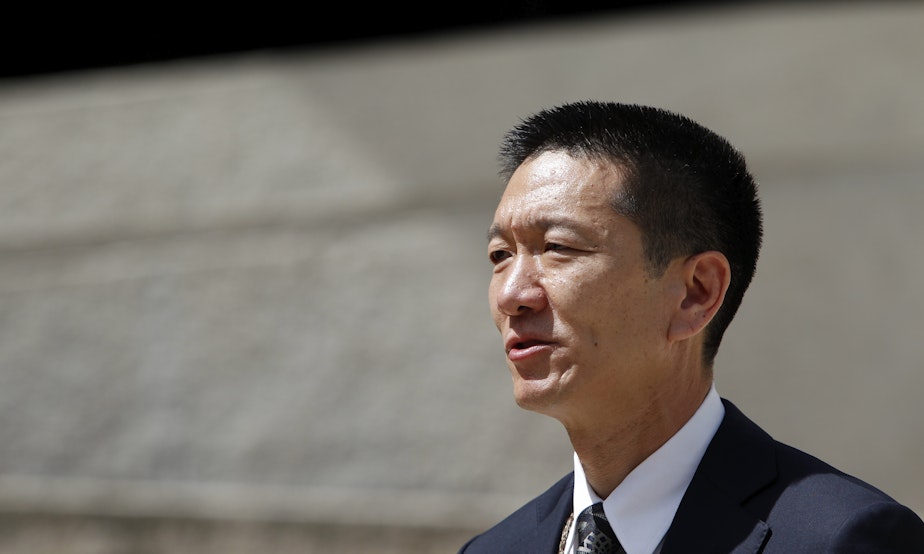Hawaiian judge stops Trump's new travel ban

A federal judge in Hawaii stopped President Trump’s newest executive order on Wednesday afternoon, just hours before it was supposed to take effect. The order would have temporarily halted the refugee program and frozen the visas to nationals from six Muslim majority countries.
The judge, Derrick K. Watson, halted the order nationwide.
Meantime, a federal hearing in Seattle on Wednesday could also potentially block President Trump’s revised travel ban from taking effect this week.
A federal court in Maryland also heard arguments for putting the new executive order on hold.
The lawsuit is brought by several immigrant rights groups, including the Northwest Immigrant Rights Project in Seattle. They argue the new version of the travel ban discriminates against Muslims and raises the same constitutional issues as the original order.
“What we are arguing before the court is that court should stop in its tracks before it even takes effect,” said Matt Adams, legal director for Northwest Immigrant Rights Project. “We're hoping that the judge is going to step up and say, ‘we're going to protect people from being harmed’ while we have time to more thoroughly go through the arguments that are going to be presented.”
Today’s hearing is before U.S. District Judge James Robart, who also halted the nationwide implementation of the first ban.
The Trump administration said it believes its revised order is legal, and that the temporary travel restrictions are needed to review security measures.
In court documents, the Justice Department argues the urgent request to block the order is unwarranted because “no immediate upheaval occurs as a result of the new order taking effect.”
The travel ban is scheduled to go into effect Thursday morning, March 16.
The order puts a 90-day pause on new visas for people from six primarily Muslim countries to enter the U.S. It also suspends refugee resettlement in the U.S. for four months.
The revised order addressed several of the legal challenges raised in the earlier version, removed language about religious consideration for refugees, and more narrowly defined those affected by the travel restrictions.
But several states challenging the order still see concerns with the ban’s intent.
“The history of how this has played out through two different executive orders to the statements made by the administration make clear that this is one long continuation of a stated goal to ban Muslims from this country,” Adams said.
Liz Jones can be reached at ljones@kuow.org. Have a story idea? Use our story pitch form.


